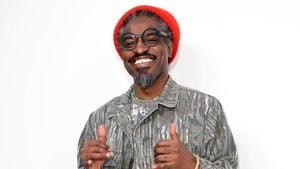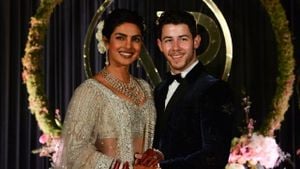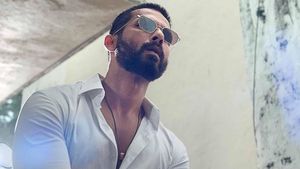The 73rd Beppu-Oita Mainichi Marathon took place on February 2, 2025, marking a significant milestone for Japanese distance running and the career of Hiroki Wakabayashi, who concluded his athletic endeavors with remarkable performances. Competing as one of the favorites, Wakabayashi became the top Japanese runner, finishing second overall with an impressive time of 2 hours, 6 minutes, and 7 seconds, which not only established new records for Japanese and student debut marathons but also positioned him favorably for potential inclusion on the national team for the upcoming Tokyo World Championships.
On what was dubbed his final race, Wakabayashi, 4th-year student at Aoyama Gakuin University, echoed his intentions clearly when he said, "I really will end this," signaling to onlookers and reporters alike his commitment to retire from competitive running. This decision follows years of dedication and training, culminating this finale with a performance marking the 7th best time ever recorded by a Japanese athlete, reinforcing his legacy within the sport.
The marathon, which started near Takasakiyama Umitamago and concluded at Jay Lease Stadium, provided the perfect backdrop as Wakabayashi aimed to celebrate his decade-long career. His finishing time also surpassed the qualifying standard for the World Championships set at 2 hours and 6 minutes and 30 seconds, raising speculation about his potential selection for the national team.
Wakabayashi’s achievements did not go unnoticed, with fellow competitor Kota Murayama, who finished 11th with a time of 2 hours and 11 minutes, sharing his own reflections on the emotional weight of the day. Murayama expressed, "I hope to convey the joy of my competition life," as he embarked on his own farewell to competitive events, having faced challenges throughout previous races, including abandonment during his first marathon.
Despite the jubilant atmosphere, questions lingered surrounding his decision to retire, especially as he was approached by commentator Toshihiko Seko during the live broadcast. Seko asked, "Are you really finished now?" to which Wakabayashi reaffirmed his stance, leaving little room for speculation. The prevailing sentiment was enhanced by coach Hara Shin’s comments reflecting on his athletes' differing paths, as he remarked, "Wakabayashi and Yoshida are different types; I respect his decision." This juxtaposition hints at what may come for other elite athletes from Aoyama Gakuin University.
The excitement of the Beppu-Oita Mainichi Marathon also serves as a reminder of the camaraderie existing among runners, as demonstrated when Murayama actively supported his twin brother, who faltered against fatigue during the race. The two had shared numerous moments growing up as competitors, with strong familial ties and shared athletic ambitions guiding them through their respective journeys.
Wakabayashi’s legacy extends beyond podium placements and personal records; his presence has inspired many budding athletes across Japan. After graduation, he is set to join a large life insurance company, leaving the competitive stage but not the sport itself. "Now he will become one to support others," stated Hara, emphasizing Wakabayashi's aspirations to transform from elite athlete to mentor within the sports community.
While Wakabayashi's competitive story appears to be at its close, his commitment to give back to the sport and inspire the next generation paints a hopeful future. The Beppu-Oita Mainichi Marathon remains etched not only as his last race but as the culmination of dreams pursued with zeal and dedication. What lies next for him isn't just about retirement but stepping onto new ground as he embarks on the next chapter of his life.
With the event drawing numerous spectators and athletes alike, it reaffirms the vibrancy of Japan's athletic culture, with many eager to follow the paths set forth by Wakabayashi and his peers. While this may be the end of one story, it certainly paves the way for many more to come.



